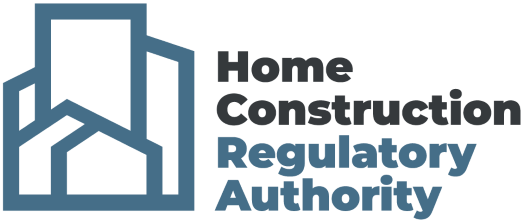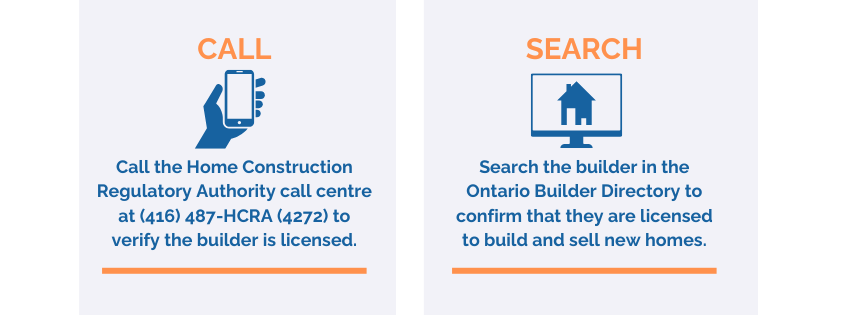Illegal Building
When builders and sellers operate without a licence – known as illegal building and selling – it puts consumers at risk and creates an uneven playing field within the homebuilding industry. Illegal building and selling is a significant consumer protection issue in Ontario and a top priority for the HCRA.
What is considered as a “New Home”?
To understand illegal building and selling, it is essential to know what qualifies as a “new home.” While the HCRA provides a technical definition, in simple terms, a home is considered “new” if it has never been lived in.
Under Ontario law, people and companies building or selling new homes must be licensed by the HCRA. This includes builders and sellers of pre-construction or newly built homes for sale, such as detached houses, semi-detached homes, townhouses, and condominiums.
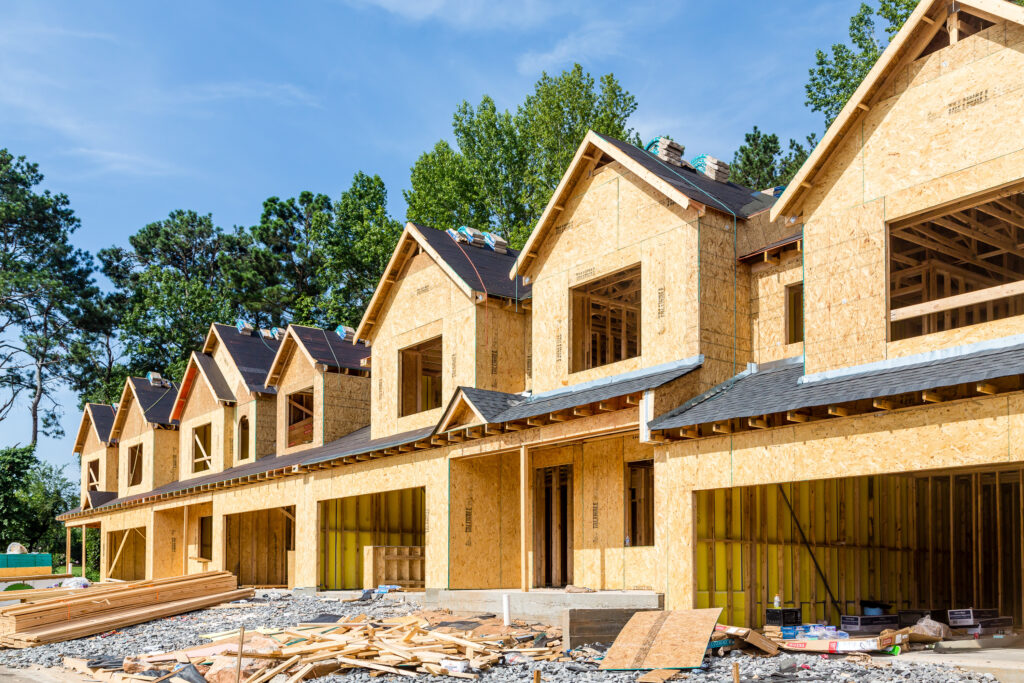
What is Illegal Buying and Selling?
Illegal building and selling can apply to three specific scenarios:
- Building a new home without being a licensed builder.
- Selling a new, unoccupied home without a licence.
- Building a new home that has not been enrolled, or selling a new home that has not been qualified for enrolment, with Tarion.
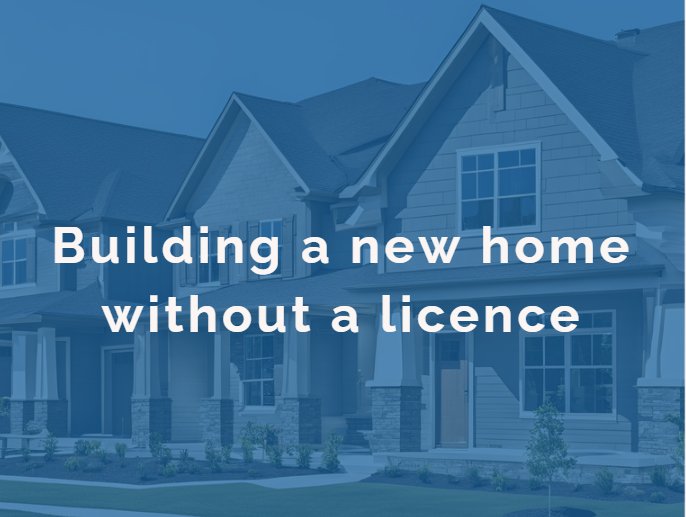
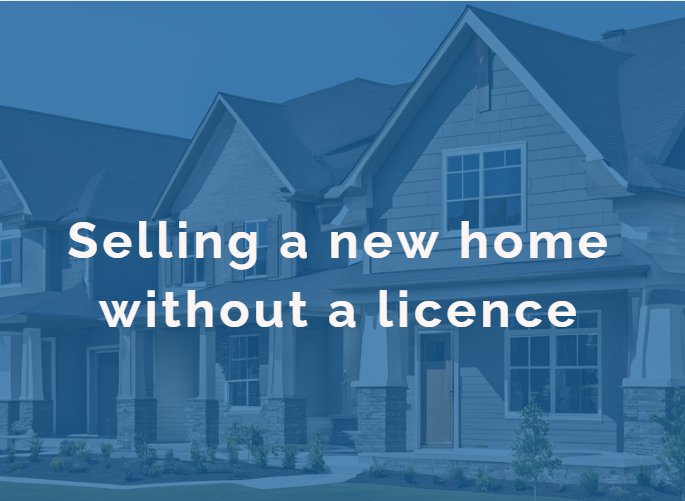
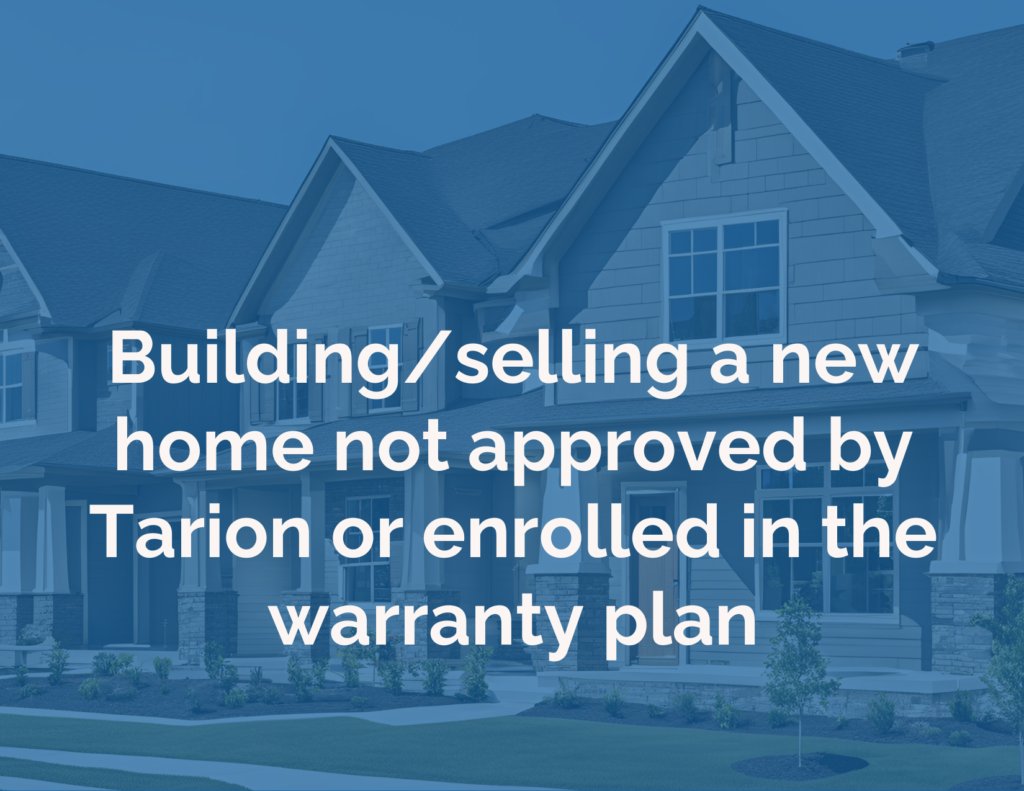
What are the Risks to Consumers?
When illegal building and selling occurs, consumers do not receive the protections that come from having a builder who is properly licensed and held to professional standards. As part of the HCRA’s licensing process, new home builders must demonstrate specific competencies, such as business planning, project management, and knowledge of building codes. Unlicensed builders cannot prove they meet these qualifications. Below are the key risks of working with unlicensed builders.
- Structural Defects & Poor Craftsmanship: If the builder is not licensed, they have not proven that they have the technical and competency skills to build homes. It could also mean that the home is poorly built and does not meet the province’s Building Code specifications. It might even be a hazard to live in. Learn more about the HCRA’s competency requirements.
- Liability Issues: An illegal builder would not be bound by the Code of Ethics . As a homebuyer, you could be at risk of working with dishonest individuals with poor conduct and as a result, you may face labour, civil and/or other liabilities.
- Financial Exposure: If a builder has not proven that they have the financial responsibility or even have the necessary insurance coverage in place, your investment could be at risk.
- Possible Impacts on Warranty Protection: The home will not be enrolled with Tarion, which means you may miss out on important warranty protections that you are entitled to as a new home purchaser.
Protecting Yourself From Illegal Builders
If you work with unlicensed individuals or companies, you risk unknowingly engaging with those who may have a history of unethical behaviour or poor conduct. The most important way to protect yourself from an illegal builder is to check if a builder or seller is licensed by the HCRA before signing a contract.
Reporting Illegal Building
Complaints and public feedback are critical tools the HCRA uses to identify and address illegal building and selling across Ontario. If you suspect a builder is operating without a licence, contact the HCRA immediately by filing an illegal building complaint form. The HCRA takes illegal building seriously and responds promptly to such complaints.
Have a professional conduct concern about your licensed builder? For concerns about the behaviour of a licensed builder or seller, please visit the Complaints section of our website.
HCRA’s Actions Against Illegal Building
Illegal building and selling are a serious offence. As the regulator, the HCRA has the authority to take strong enforcement action against individuals and companies involved in illegal building, illegal selling, or failing to enrol a home in Ontario’s new home warranty program.
To combat illegal activity and bring unlicensed builders into compliance, the HCRA has expanded its Investigations team and actively uses a range of regulatory tools. These include laying charges against individuals and companies for illegal building and selling, with escalating penalties for repeat offenders. The HCRA also issues administrative penalties, similar to fines, and has returned funds to harmed purchasers.
In addition, the HCRA has developed enforcement approaches that encourage voluntary compliance. This has successfully prompted numerous illegal builders to apply for an HCRA licence and enrol their projects with Tarion. Combating illegal building is a collective effort, and the HCRA collaborates closely with key stakeholders – including municipalities, building officials, real estate professionals, and other regulatory bodies – to curb this activity.
Regulatory Actions and Decisions are available on the Ontario Builder Directory
